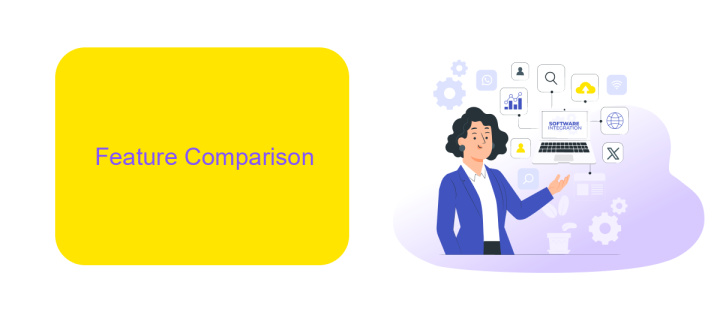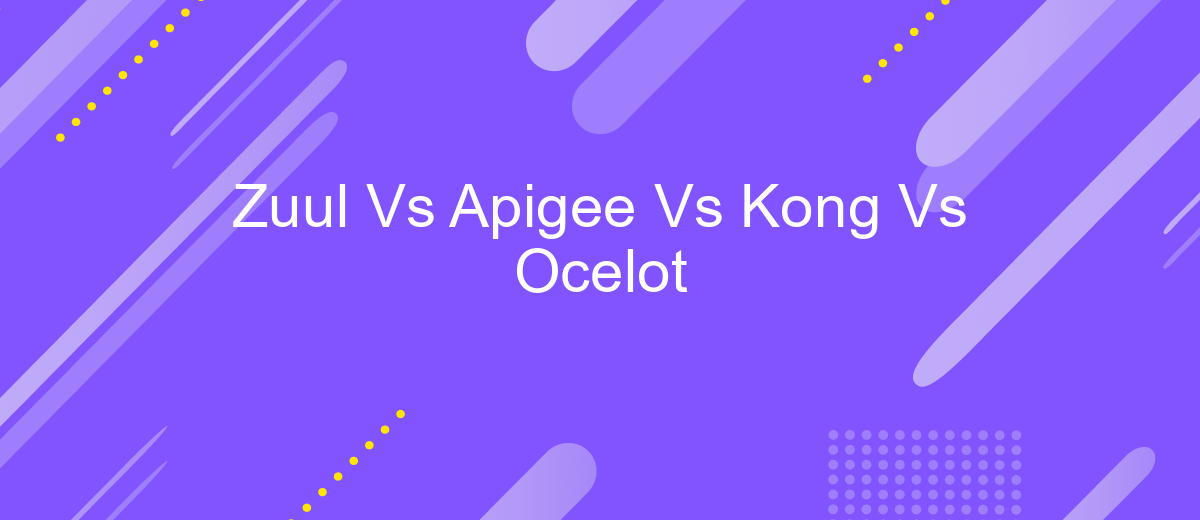Zuul Vs Apigee Vs Kong Vs Ocelot
In the rapidly evolving landscape of microservices architecture, API gateways play a crucial role in managing, securing, and optimizing API traffic. Zuul, Apigee, Kong, and Ocelot are among the leading API gateway solutions available today. This article delves into a comparative analysis of these four platforms, highlighting their unique features, strengths, and potential use cases to help you make an informed decision.
Introduction
In the rapidly evolving landscape of microservices and API management, choosing the right gateway can significantly impact the efficiency and reliability of your system. Zuul, Apigee, Kong, and Ocelot are among the most popular API gateways, each offering unique features and capabilities tailored to different needs. Understanding their differences and strengths can help you make an informed decision that aligns with your specific requirements.
- Zuul: Developed by Netflix, Zuul serves as a gateway for dynamic routing, monitoring, and security.
- Apigee: A Google Cloud product, Apigee provides robust API management, analytics, and security features.
- Kong: Known for its high performance and extensibility, Kong offers a scalable solution for managing APIs and microservices.
- Ocelot: A lightweight, open-source API gateway designed for .NET applications, offering easy integration and configuration.
As businesses increasingly rely on API-driven architectures, integrating services like ApiX-Drive can further streamline the process. ApiX-Drive facilitates seamless integration between different services and applications, ensuring smooth data flow and operational efficiency. By leveraging these API gateways and integration tools, you can optimize your API management strategy and enhance the overall performance of your system.
Feature Comparison

Zuul, Apigee, Kong, and Ocelot are popular API gateways, each offering unique features. Zuul, developed by Netflix, excels in dynamic routing and monitoring, making it ideal for microservices architecture. Apigee, by Google, provides robust API management, analytics, and security, catering to enterprise-level needs. Kong, an open-source gateway, offers high performance and scalability with a rich plugin ecosystem, suitable for diverse deployment scenarios. Ocelot, a lightweight .NET API gateway, is perfect for simple use cases and seamless integration with .NET applications.
When it comes to integration capabilities, ApiX-Drive can enhance the functionality of these gateways by automating data transfers and simplifying API connections. ApiX-Drive's user-friendly interface and extensive integration options allow you to connect various services without extensive coding, ensuring efficient data flow across platforms. This makes it a valuable addition to any API gateway setup, streamlining processes and enhancing overall productivity.
Licensing and Pricing

When considering API gateway solutions like Zuul, Apigee, Kong, and Ocelot, it's important to evaluate their licensing and pricing models to make an informed decision. Each of these tools offers different pricing structures that cater to various business needs and budgets.
- Zuul: Zuul is an open-source project by Netflix, making it free to use. However, costs may arise from infrastructure and maintenance.
- Apigee: Apigee by Google Cloud offers a tiered pricing model, including a free tier with limited features and enterprise plans that scale with usage and additional capabilities.
- Kong: Kong provides both open-source and enterprise versions. The enterprise version includes advanced features and support, with pricing based on the number of nodes and usage.
- Ocelot: Ocelot is an open-source .NET API gateway, free to use. Similar to Zuul, additional costs may be incurred for hosting and management.
When integrating these gateways, services like ApiX-Drive can simplify the process, offering automated data synchronization and integration without extensive coding. This can be a cost-effective solution for businesses looking to streamline their API management. Ultimately, the choice depends on the specific requirements and budget of your organization.
Use Cases and Customer Testimonials

Zuul, Apigee, Kong, and Ocelot are popular API gateway solutions, each with unique strengths suited for different use cases. Zuul, developed by Netflix, excels in dynamic routing and monitoring, making it ideal for large-scale streaming services. Apigee, a Google Cloud product, is favored by enterprises for its robust analytics and security features.
Kong, with its lightweight and high-performance architecture, is perfect for microservices and real-time applications. Ocelot, an open-source .NET solution, is widely used in enterprise environments for its seamless integration with ASP.NET Core applications. These gateways have facilitated numerous successful implementations across various industries.
- Zuul: Netflix uses Zuul to handle billions of requests daily, ensuring smooth streaming experiences worldwide.
- Apigee: Walgreens leverages Apigee to manage its API ecosystem, enhancing customer engagement through secure and scalable APIs.
- Kong: Glovo, a global delivery service, relies on Kong for its microservices architecture, ensuring rapid and reliable deliveries.
- Ocelot: A leading financial institution uses Ocelot to streamline its backend services, improving transaction speed and reliability.
For seamless integration and automation of these API gateways, services like ApiX-Drive can be invaluable. ApiX-Drive simplifies the process of connecting various applications and services, ensuring smooth data flow and enhanced operational efficiency. This makes it easier for businesses to manage and optimize their API strategies.
Conclusion
In conclusion, choosing the right API gateway depends heavily on your specific needs and the scale of your operations. Zuul, Apigee, Kong, and Ocelot each offer unique features and benefits that can cater to different use cases. Zuul is a strong candidate for those already invested in the Spring ecosystem, while Apigee provides robust enterprise-level features suitable for large organizations. Kong's plugin architecture and performance make it an excellent choice for high-traffic environments, and Ocelot is well-suited for .NET applications with its lightweight and easy-to-use configuration.
For businesses looking to streamline their API integrations, services like ApiX-Drive can significantly simplify the process. ApiX-Drive offers a user-friendly interface and a variety of pre-built connectors, making it easier to connect different services without extensive coding. Whether you're handling microservices, managing APIs, or integrating various platforms, selecting the right tool and leveraging services like ApiX-Drive can enhance your operational efficiency and scalability.


FAQ
What are the primary differences between Zuul, Apigee, Kong, and Ocelot?
Which API gateway should I choose for a microservices architecture?
Can these API gateways integrate with automation and integration tools?
Are these API gateways suitable for handling high traffic?
How do these API gateways handle security?
Time is the most valuable resource in today's business realities. By eliminating the routine from work processes, you will get more opportunities to implement the most daring plans and ideas. Choose – you can continue to waste time, money and nerves on inefficient solutions, or you can use ApiX-Drive, automating work processes and achieving results with minimal investment of money, effort and human resources.

